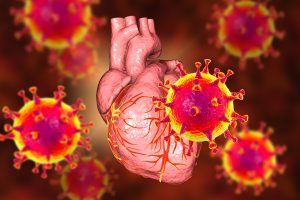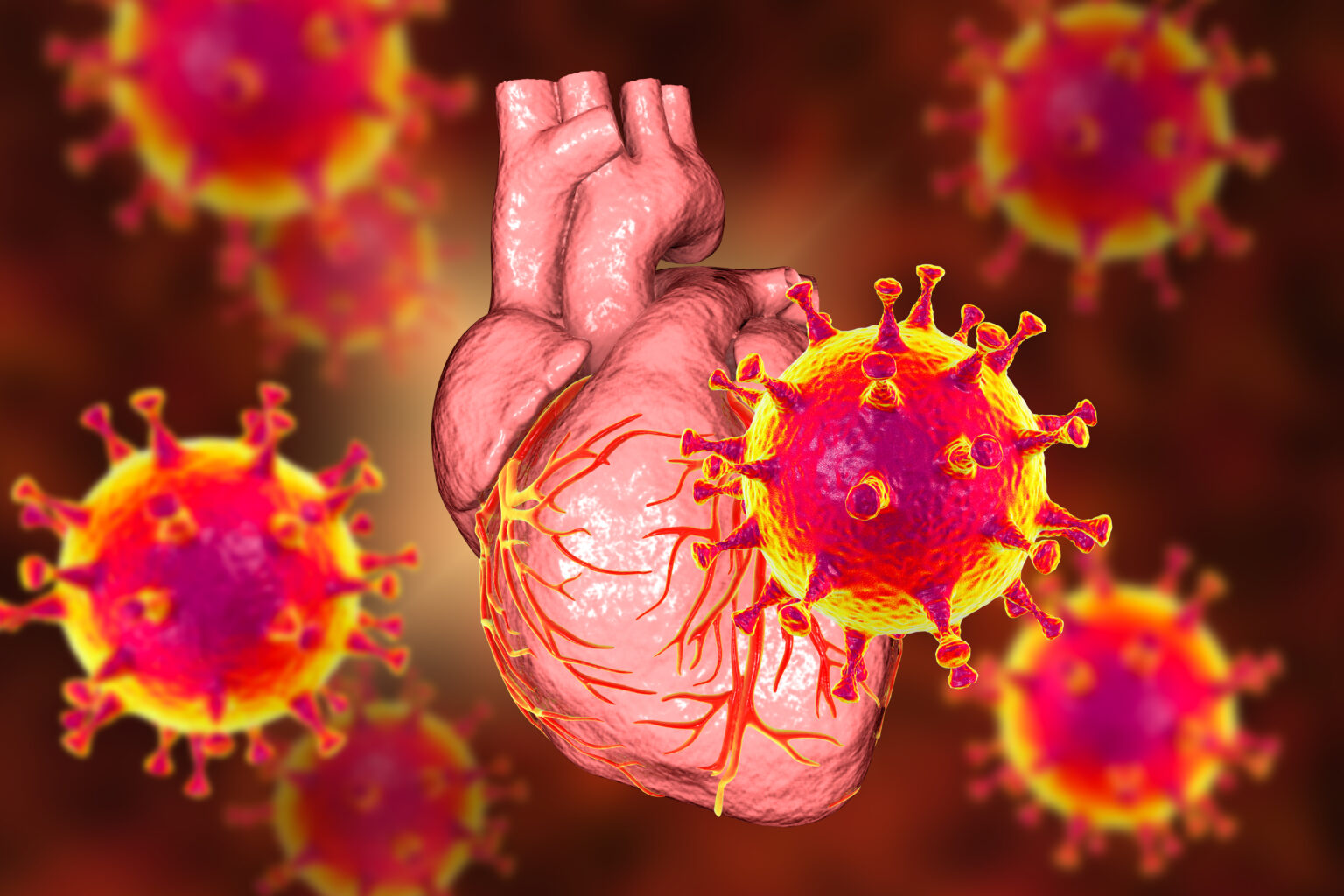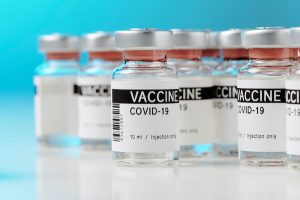What is long COVID?
Long COVID is also called post-COVID syndrome, post-COVID conditions, long-haul COVID, and post-acute sequelae of SARS COV-2 infection (PASC).
Most people who get COVID usually recover within a few weeks. But some patients might have protracted symptoms for weeks to months afterwards.
There is little consensus on what long COVID really is. In fact, the definition of long COVID is not straight forward, with different bodies providing slightly different statements and time frames.
In the UK, the National Institute for Health and Care Excellence (NICE) defines long COVID as symptoms lasting for more than 12 weeks, or at times lasting more than eight weeks.
The World Health Organization (WHO) defines long COVID as symptoms persisting usually 3 months from the onset of COVID that last for at least 2 months and cannot be explained by an alternative diagnosis.
David Gorman writes on “Dr I know” that in one retrospective study of approximately 1300 hospitalised COVID patients discharged to home, only 40% of patients were independent in all activities of daily living at 30 days despite home health services. In another cohort analysis, almost 40% of patients were unable to return to normal activities at 60 days following hospital discharge, whereas out of 219 patients, who were hospitalised with COVID, 53% had significant functional impairment at four months.
Symptoms of long COVID
People with long COVID are usually negative for a COVID test unless they have a new infection. Long COVID comprises a variety of new, returning and ongoing symptoms. These symptoms can be quite debilitating, altering the quality of life, the ability to return to work and cause or aggravate mental health issues. However, fatigue is not unique to long COVID as it can also arise after other viral infections. Also, COVID infection can reawaken pre-existing conditions like chronic fatigue syndrome, which limits significantly physical and mental activity.
It is important to consider that symptoms of long COVID are mostly self-reported, and difficult to measure. For this reason, it is essential to perform a differential diagnosis to exclude other conditions prior to concluding the existence of long COVID.
In terms of epidemiology studies, we need to distinguish which category of patients were included in any analysis. Many published studies reporting the incidence of long COVID recruited patients who were infected with the early COVID variants that produced a more severe illness, hospitalisation and death, as opposed to more recent studies where patients were infected with the more infectious but less severe COVID omicron variants in the period between late 2021 and 2022. These groups of patients cannot be compared directly also because of the availability of vaccines coming to the market in 2021 providing an unquestionable reduction in severe illness and death.
The chronological distinction between the study patient cohorts revealed that long COVID is indeed more prevalent with the early COVID variants. In this regard, research focusing on 56,000 patients mostly infected with the omicron variant around early 2020-2021, reported that 4.5% people who had omicron (later COVID variant in the pandemic) developed long COVID, compared to people who had the Delta variant (early COVID variant in the pandemic) with an incidence at 10.8%.
The plentiful symptoms of long COVID
The most common symptoms of long COVID are:
- Fatigue
- Symptoms that get worse after physical or mental effort
- Fever
- Respiratory issues, difficulty breathing or shortness of breath and cough
Other symptoms include:
- Neurological or mental health conditions: poor concentration, headache, sleep disturbances, dizziness, pins-and-needles feeling, loss of smell or taste, and depression or anxiety
- Joint and muscle pain
- Heart symptoms or conditions, (chest pain and fast heartbeat)
- Digestive symptoms (diarrhea and stomach pain)
- Blood clots and vascular issues (pulmonary embolism)
- Rash and changes in the menstrual cycle
Some studies have attempted to categorise the symptoms of long COVID. Research from the Imperial College of London examining half a million people has divided the symptoms characterising long COVID into two categories:
- A small group of people with respiratory symptoms, such as a cough or breathlessness, (this group was more likely to have had severe COVID illness initially)
- A larger group with more general symptoms, particularly tiredness and fatigue.
A study based on the ZOE COVID Symptom Study App in the UK, taking over 4,180 patients identified:
- One group with respiratory symptoms, including fatigue and headaches
- A second group with symptoms affecting the heart, brain and gut. The heart symptoms were palpitations (increased heartbeat), as well as pins and needles, numbness and ‘brain fog’.
Risk factors leading to long COVID
Data acquired from the COVID symptoms Study App in the UK found that long COVID is more common among older people and females aged 35-69. It affects around one in ten 18–49-year-olds, increasing to one in five (22%) people over 70 years. The researcher also found a clear link of people with asthma who are more likely to develop long COVID.
Leading from the above, the main risks of developing long COVID are:
- Patients with severe COVID illness resulting in hospitalisation and admission to the intensive care unit
- Pre-existing medical conditions
- Severe multisystem inflammatory syndrome triggered by COVID infection
- Adults are more prone to long COVID than younger patients.
Recent research identified a few quantifiable risk factors, which seem to predict the onset of long COVID.
A study on 209 patients published in January 2022 reported four factors detected early after COVID infection that correlated with an increased risk of having ongoing symptoms two to three months later.
- A high level of COVID RNA in blood early in the infection is an indicator of viral load.
- Blood presence of autoantibodies that attack own body tissues as in autoimmune diseases e.g. lupus and rheumatoid arthritis.
- Reactivation of Epstein-Barr virus (causing mononucleosis), which normally becomes dormant after infection mostly in the youth.
- Type 2 diabetes, is one of several medical conditions predisposing to long COVID.

COVID infection may cause new conditions
Besides the onset of long COVID symptoms, COVID infection has been reported to trigger new conditions that were not diagnosed prior. Patients who had a severe illness with COVID might experience organ damage affecting the heart, kidneys, skin and brain.
Heart conditions. A recent investigation (February 2022) of the Department of Veterans Affairs health records including over 150,000 people, found that COVID survivors were 63% more likely to have a heart attack and 52% more likely to have a stroke. Veterans also had higher risks of heart failure, irregular heart rhythms, blood clots and inflammatory disorders such as pericarditis and myocarditis (inflammation of the heart tissues).
Autoimmune diseases have been observed after COVID infection. COVID is renowned to cause a profound immune response, which in most severe cases elicited the so-called “cytokine storm”, an exaggerated production of inflammatory mediators having detrimental consequences on many tissues of the body, primarily the lungs. The dysfunction of the immune system can degenerate into the development of autoimmune diseases. We heard of the onset of diabetes after COVID, an autoimmune condition targeting the Langerhans cells of the pancreas producing insulin.
Mental health. There are also conditions concerning the nervous system such as PTSD (Post Traumatic Stress Disorder) in patients who were subject to prolonged intensive care unit treatment, who survived the trauma of being severely ill possibly with long-term treatment in intensive care.
Can children get long Covid?
Yes. The Office for National Statistics (ONS) survey showed that after five weeks almost 13% of children aged between two and 11, and 14.5% of children aged 12 to 16 reported fatigue, cough, headache, muscle aches or loss of taste. Six out of 10 children with long COVID symptoms said it limited their ability to carry out day-to-day activities. The data was based on a survey of 2,326 children in schools in England from 2-26 July 2021.
Vaccines do prevent long COVID
There is no actual strategy to prevent the development of long COVID since still today we do not really understand why some people develop it and others don’t. However, it is most likely certain that being vaccinated, not only reduces the chance to be infected and become severely ill, but also the risk of long COVID.
A study published in Nature Medicine in May 2022 reported that being vaccinated lowered the risk of complications (including long COVID) by 15 %, and the risk of death by 33%, compared to people who were unvaccinated. COVID vaccination was particularly effective in reducing the incidence of lung and blood clotting disorders.
In February 2022 the UK Health Security Agency (UKHSA) published a review combining 15 long COVID studies from across the world. They found that people who caught COVID after having two doses of Pfizer, AstraZeneca, or Moderna, or one dose of the Janssen vaccine, were half as likely to develop lasting COVID symptoms (28 days or more from the infection), compared to those who were unvaccinated, or only had one dose.
The research also found a reduction in longer-term long COVID symptoms (up to six months). The vaccine effectiveness against most post-COVID symptoms was highest in people aged 60 years and over, and lowest for younger participants (19 to 35 years).
Vaccination while having long COVID reduces symptoms
There is growing evidence showing that being vaccinated while having long COVID symptoms is also beneficial. Four studies specifically compared long COVID symptoms before and after vaccination. Three of these studies suggested that more people with COVID reported an improvement rather than a worsening in symptoms after vaccination, either immediately or over several weeks.
One study looked specifically at the timing of vaccination after COVID infection and suggested that people who were vaccinated sooner after diagnosis were much less likely to report long COVID symptoms than people who were vaccinated later after diagnosis.
How can we explain long COVID?
There are different hypotheses concerning the mechanisms leading to long COVID.
The brain inflammation theory. With an advanced type of PET imaging of the brain (using a radioactive tracer ([18F]DPA-714)) a Dutch group showed widespread brain inflammation in two long COVID patients. This result implicates profound neuroinflammation in the pathophysiology of long COVID, which can explain some of the neurological symptoms in these patients, from fatigue to cognitive impairment and loss of smell. A sequel study is warranted to confirm this result in a larger cohort of patients.
The gut theory. Some of the symptoms caused by COVID infection involve the disturbance of the gut, which can become a prolonged sign of long COVID. Interestingly, genetic material from the virus was found in the stools of patients for months after catching COVID. Also, the viral spike protein was detected in the blood of 65% of long COVID patients up to 12 months after they were first diagnosed. Because the half-life of the spike protein is very short, its prolonged presence in blood suggests ongoing viral replication. There is mounting evidence to support the theory that persistent pockets of coronavirus – in the gut, or elsewhere – may be contributing to long COVID.
The immunological dysfunction theory. A group of investigators from NSW, Australia, demonstrated that patients with long COVID had highly activated immune systems including the presence of larger numbers of innate immune cells, and elevated expression of inflammatory mediators/proteins that are typically produced to combat viral infections such as type I interferon (IFN), (IFN-β) and type III IFN (IFN-λ1) that remained persistently high at 8 months after infection.
An ongoing, sustained inflammatory response following even a mild-to-moderate acute COVID is not found following other coronavirus infections such as the ones causing the common cold. The drivers of this immune activation remain unknown, requiring further investigation. It is conceivable that the persistence of viral antigens (proteins) in the body, and the onset of autoimmunity processes driven by antigenic cross-reactivity of viral proteins with the body’s own proteins may be the cause of aberrant inflammation.
Recovering with long COVID
While there is no cure specific to long COVID, patients can receive treatments addressing some of the specific symptoms. If fatigue is the problem, preserving energy throughout the day can help reduce post-COVID fatigue. Return to exercising at a very slow pace, is certainly helpful beginning with basic aerobic conditioning and doing floor strength training before moving to more intense, upright exercise.
It is often recommended to keep an eye on a number of physiological parameters to monitor the frequency of heartbeat, blood pressure and oxygen saturation, all of which can be easily done at home.
If the risk of cardiovascular disease is present, some medications such as beta blockers to control blood pressure or calcium channel blockers to counteract dizziness, abnormal heart rhythm and chest pain can be prescribed. These medications require a close supervision by a health professional.
With issues relating to mental health, the practice of mindfulness has proven to be helpful. Mindfulness involves breathing techniques, guided imagery, and other practices to relax the body and mind and help reduce stress. A guided thought-changing pattern can assist in reducing the focus on pain, fatigue and other symptoms arising with activity. Along with this is yoga, another practice complementing a broad self-care strategy that can help relax, relativise the health condition and manage long COVID symptoms.
Among the possible approaches against long COVID, including antiviral treatments, are only beginning to be studied. The National Institutes of Health in the US is devoting more than $1 billion to an extensive research effort called the Recover Initiative, which is still ongoing.
Are there any medico-legal repercussions with long COVID?
Because of the lack of knowledge relative to the factors that cause long COVID, it is difficult to determine the legal responsibilities potentially leading to compensation when a patient suffers from the variety of symptoms typical of long COVID.
Likewise, it is hard to establish whether errors in early patient treatment are responsible for the persistence of symptoms because long COVID affects severely ill as well as mildly ill COVID patients. Although there are guidelines for the treatment of hospitalised COVID patients, for those with mild symptoms often the care does not even require the assistance of a general practitioner as patients manage their symptoms at home.
With certainty, a medical examination may be necessary for the assessment of a long COVID patient if this patient is unable to perform daily living and professional activities as a consequence of these ongoing symptoms.
A team of specialists may be involved to manage long COVID patients. Depending on the patients’ report, to begin with, a general practitioner will perform the first assessment, which may require a follow up with a specialist: a psychologist or psychiatrist if mental health is affected by long COVID, as well as a respiratory physician for lung related issues, a cardiologist where heart malfunction has arisen post-COVID infection, a neurologist for symptoms of the nervous system and a rheumatologist in case of persisting musculoskeletal pain, myalgia and muscle/joint dysfunction.
In this regard, Lex Medicus has a panel of experts ready for you, should you need to consult a specialist in any area of care arising from long COVID.
If you wish to learn more about long COVID or book one of our experts please contact us on 1300 633 453 or via email at info@lexmedicus.com.au.



